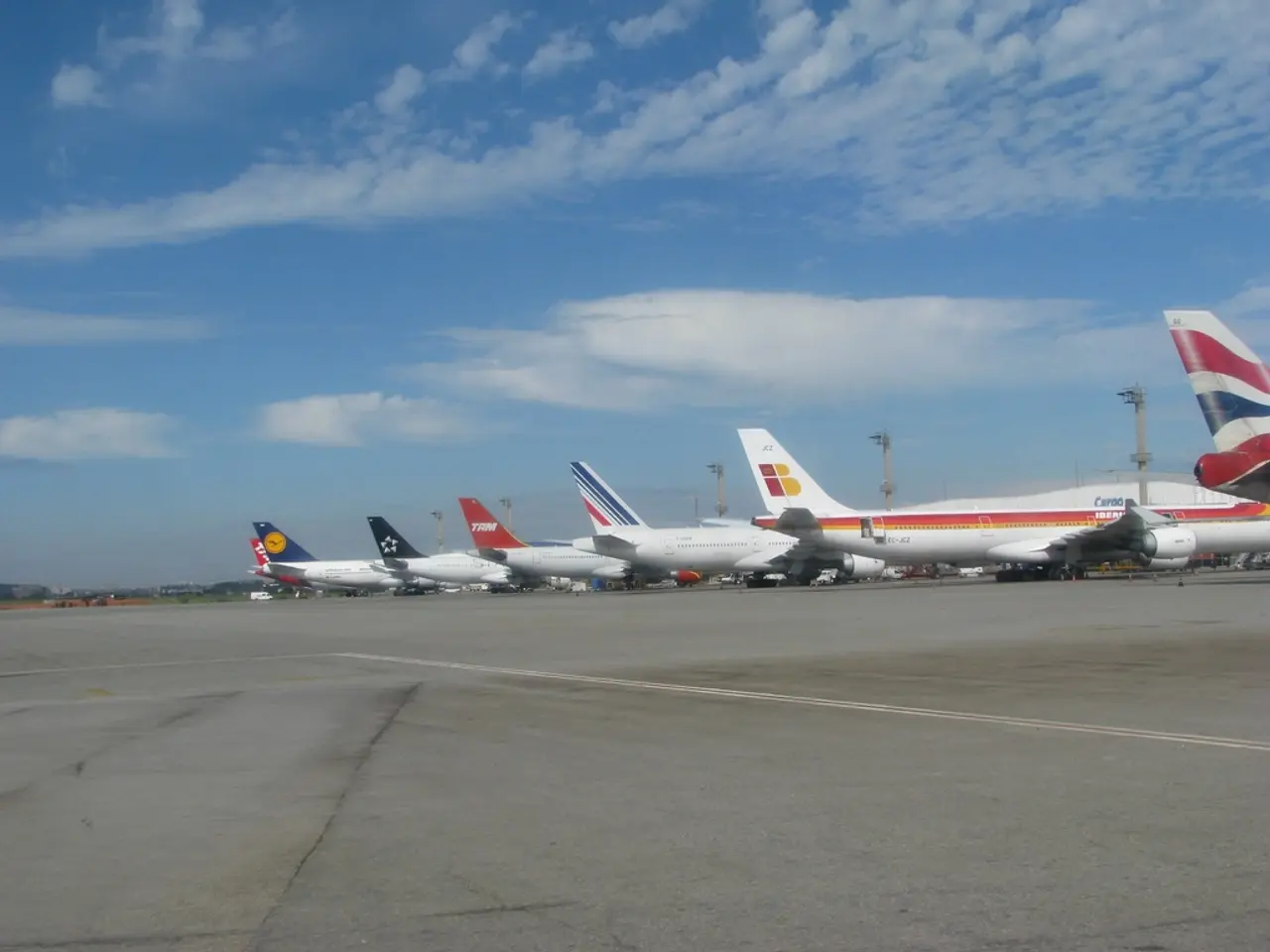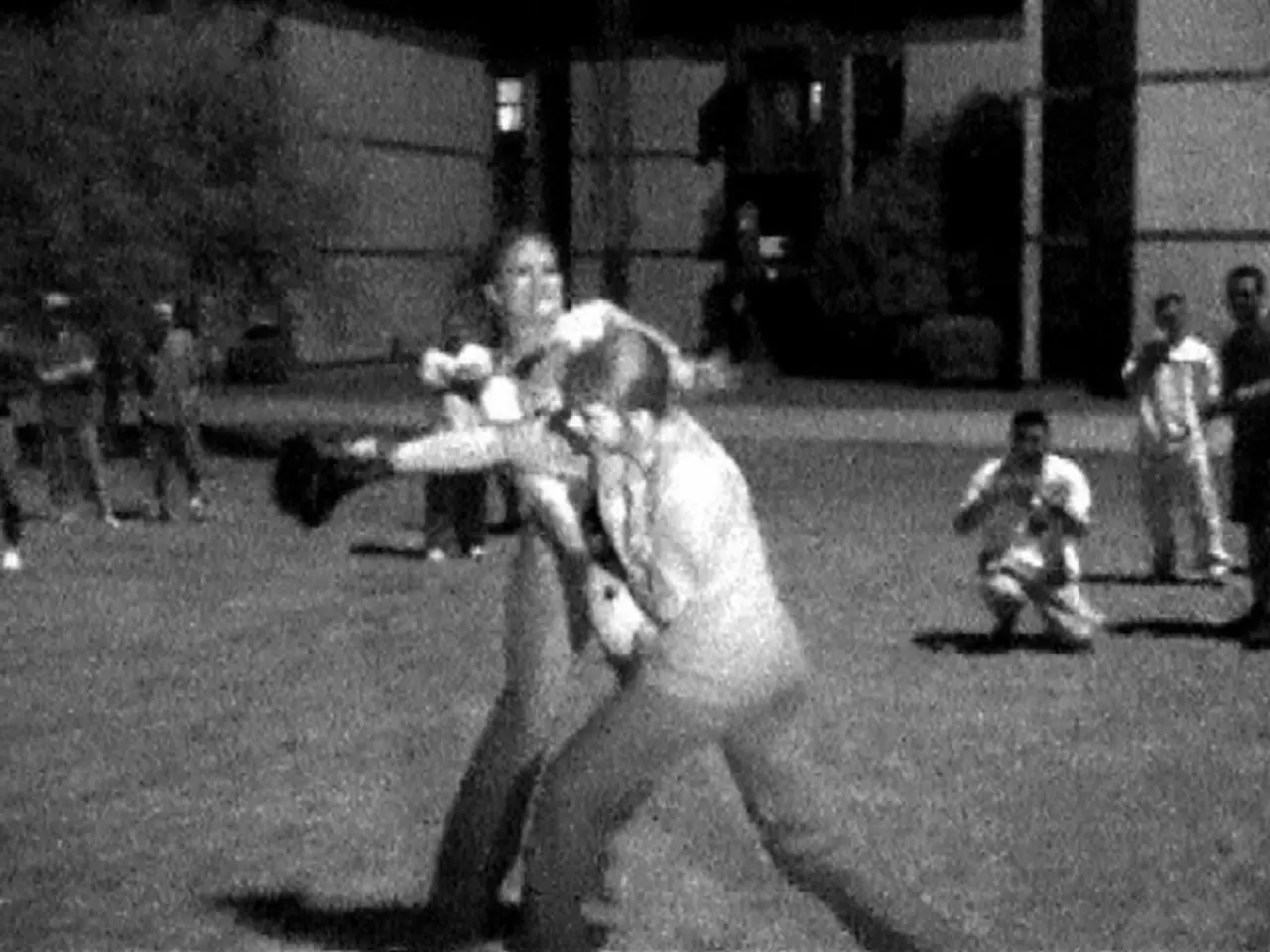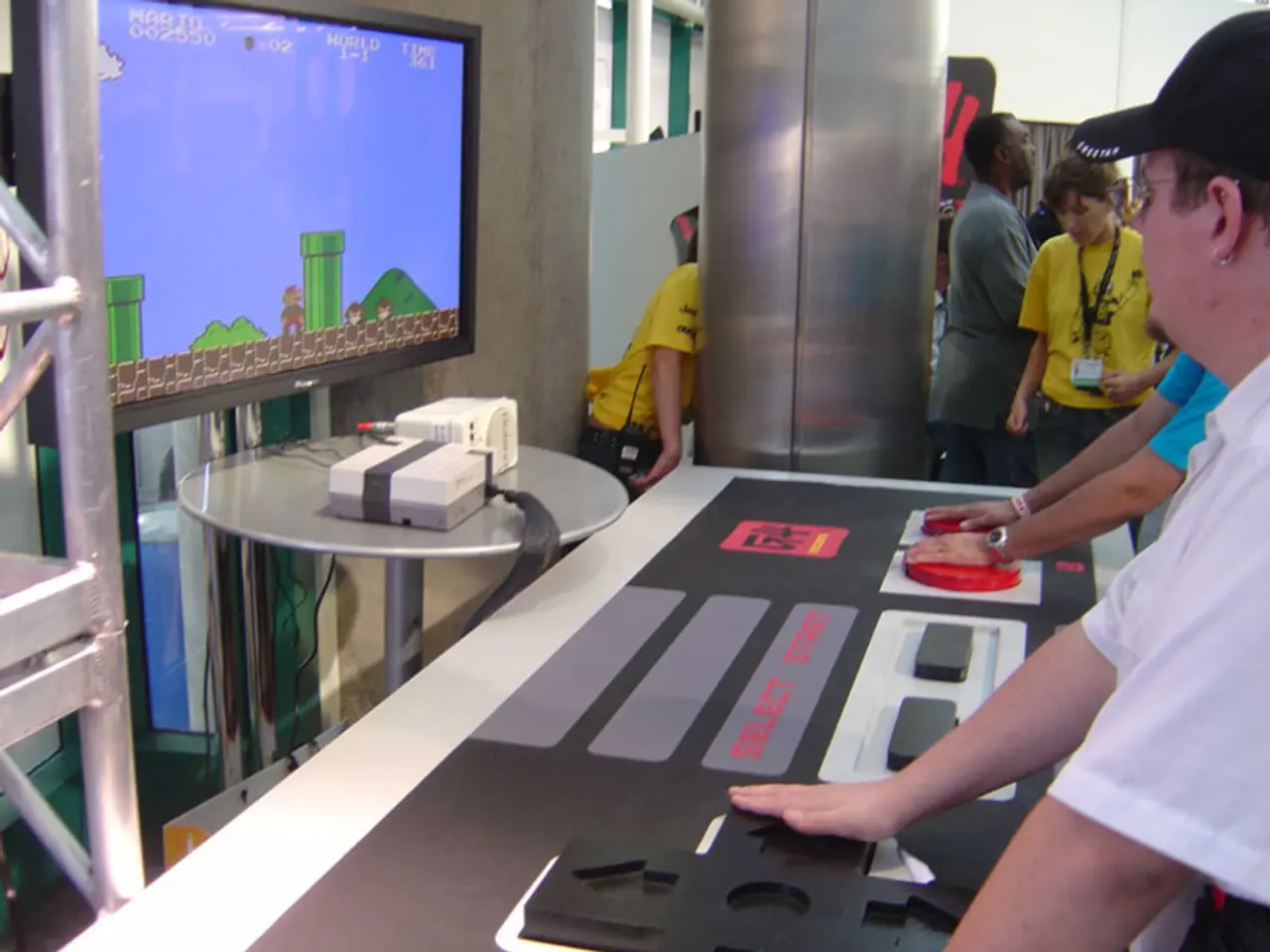Disruption Spreads Wings: Over 125 flights grounded on Friday, following 933 cancellations on Thursday, due to air traffic controller strikes
A strike by French air traffic controllers, primarily over concerns about wages, insufficient staffing levels, and changes in management practices, has been causing significant disruptions to flights across France and Europe, particularly at the start of the busy summer holiday season.
The industrial action, which involves the UNSA-ICNA union (the second-largest air traffic controllers' union in France) and is supported by USAC-CGT, began on July 3, 2025. Key union demands include better pay, increased staffing, and improved management practices.
Unions argue that inflation has reduced the real value of salaries and that wages need to be increased to reflect the high-stress nature of the job and the cost of living. There are also concerns that current staffing levels are not adequate to handle the seasonal surge in air travel, leading to overwork and safety risks. The unions are protesting against new reform measures that would impose stricter monitoring of their work, feeling that the approach is punitive and undermines professional autonomy.
Despite the disruptions, the SNCTA, France’s largest ATC union, is not participating in the strike, helping to limit some of the impact. The widespread cancellations and delays are affecting not only flights to and from France but also those merely passing through French airspace.
The strike has resulted in almost all private jet flights in Nice being canceled, and half of the commercial flights in the city have been affected. The Parisian airports and Nice were particularly affected by the cancellations, causing traffic jams on roads and trains to be at capacity before vacation departures.
As of Friday, 1,125 flights were canceled due to the strike, and hundreds of thousands of people have been affected as of Thursday, July 3. The Transport Minister, Philippe Tabarot, has condemned the strike, citing an economic impact on airlines of "several million euros." He has also stated that the strike is unacceptable as it affects the well-being of over 500,000 people.
The French Airports Union has stated that the strike's demands are difficult-to-justify and are sacrificing the general interest. A contested reform is underway to establish a clock-in system for controllers, which is another point of contention for the unions.
The strike is expected to end on Saturday, bringing some relief to travelers across Europe who have been affected by the disruptions. However, the total number of flights canceled due to the strike across France is not specified in this paragraph. The strike has affected travelers across Europe, with 933 planes remaining on the tarmac due to the strike on Thursday alone. According to the DGAC, 251 strikers were recorded among the thousand service personnel in Nice on Friday.
In conclusion, the ongoing strike by French air traffic controllers has caused significant disruptions to flights across France and Europe, impacting hundreds of thousands of people and resulting in an estimated economic impact of several million euros. The strike is due to two minority unions demanding improved working conditions and increased staffing, and while the strike is expected to end on Saturday, the total number of flights canceled due to the strike across France is not yet specified.
- The ongoing strike by French air traffic controllers, a part of policy-and-legislation, has caused car-accidents in the form of traffic jams on roads and trains due to cancellations and delays.
- The disruptions attributed to the strike have extended to general-news as hundreds of thousands of people have been affected, and economically, the airlines have suffered losses of several million euros.
- In the realm of crime-and-justice, the strike protests against stricter monitoring measures, including a clock-in system for controllers, which the unions view as punishment and an infringement on their professional autonomy.








